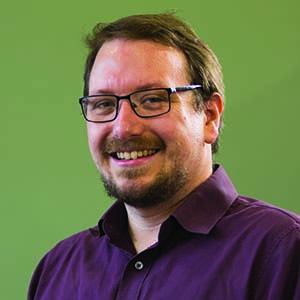Biography
I was appointed to a lecturer in biosciences in Keele at the end of 2010. Before arriving in Keele I obtained a first class BA(Hons) in Natural Sciences (specialising in Physiology in the final year) from Queens’ College, University of Cambridge. I was then awarded a British Heart Foundation PhD studentship to investigate the molecular mechanisms underlying the activation of store-operated calcium entry in human platelets in the Department of Physiology, Development and Neuroscience, University of Cambridge. I completed my PhD in 2007 and was elected to a Junior Research Fellowship at St Catharine’s College, University of Cambridge in October of the same year. During my time at St Catharine’s, I was actively involved in both university and college teaching in physiology for medical, veterinary and natural science students, and In 2009, I was appointed as the Director of Studies for first year Preclinical medicine at St Catharine’s College.
Research and scholarship
Group Lead of Cardio-respiratory Research Group
My research interests lie in the calcium signalling mechanisms that control the activation and aggregation of human platelets in responses to physiological stimuli. These calcium signals are crucial to allow platelets to clot upon damage to the blood vessel wall. However platelets can also be triggered to clot inside intact, inflamed blood vessles. This aberrant clotting can lead to a person suffering from deep vein thrombosis, pulmonary embolism, heart attack and stroke. These cardiovascular disorders are the main cause of death in adults in the United Kingdom. Therefore understanding the calcium signalling mechanisms of platelets may allow us to identify novel targets for drugs to help prevent this unwanted platelet activity.
Calcium signalling is the result of a complex interplay between a number of direct and indirect factors that can affect the flux of calcium into and out of the cytosol, therefore solely interpreting data measuring the cytosolic calcium concentration can lead to incorrect conclusions to how this signal was brought about (Harper & Sage, 2007; Harper et al.,2009; Harper et al., 2010; Sage et al., 2011). Therefore my research has become interested in developing and utilising a systems-level analysis of platelet calcium signalling in which all the factors that can influence platelet cytosolic calcium concentration are systematically measured. We believe this methodology will help us more reliably decode the mechanisms by which calcium signals are shaped in these cells. We want to develop this systems-level analysis further, and in the future we hope to use it to further delineate the calcium signalling system of platelets from healthy individuals, as well as to help identify areas of the calcium signalling system which are dysregulated in situations where platelet calcium signalling is known to be abnormal such as in patients suffering from diabetes mellitus, hypertension and stroke.
Teaching
I teach elements of the undergraduate curriculum for the Keele University MBChB in the School of Medicine.
Further information
Research Grants Held:
British Heart Foundation Project Grant – Molecular and functional characterization of sodium-calcium exchangers and their role in secretion and calcium signaling in human platelets (PG/07/100/23759). Coheld with Dr Stewart Sage and Dr Michael Mason.
Publications
School address:
School of Pharmacy and Bioengineering
Hornbeam Building
Keele University
Staffordshire
ST5 5BG
Research centre address:
School of Pharmacy and Bioengineering
Guy Hilton Research Centre
Thornburrow Drive
Stoke-on-Trent
ST4 7QB
Tel: +44 (0) 1782 674988
Undergraduate enquiries:
Email: enquiries@keele.ac.uk
Tel: +44 (0)1782 734010
Postgraduate enquiries:
Please contact the CPD4ALL team:
Email: phab.postgraduate@keele.ac.uk
Keele Centre for Medicines Optimisation (KCMO)
Tel: +44 (0)1782 733831 / 734131
The Virtual Patient project enquiries:
Contact our Digital Development team:
Email: pharmacy.digital@keele.ac.uk


